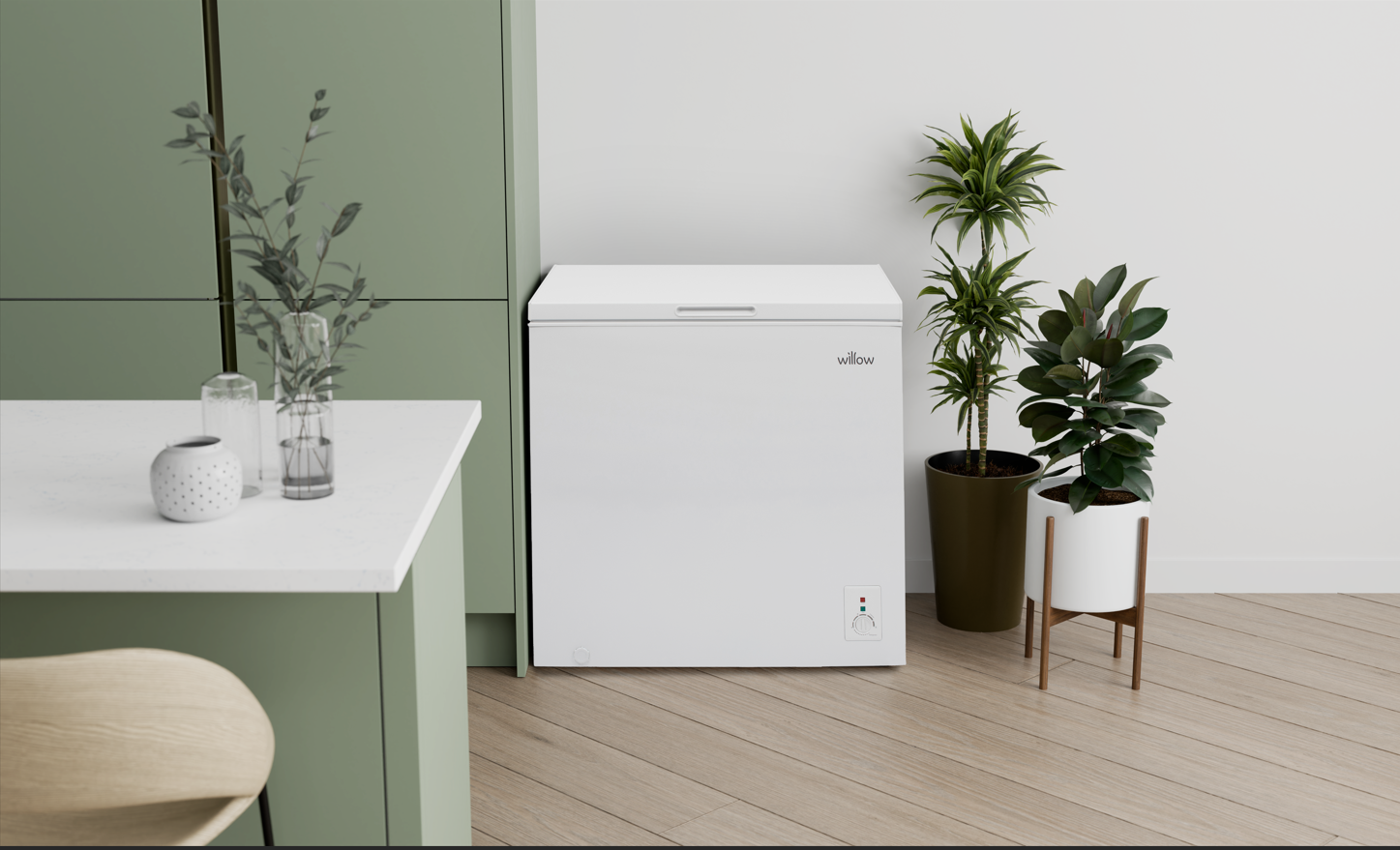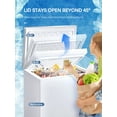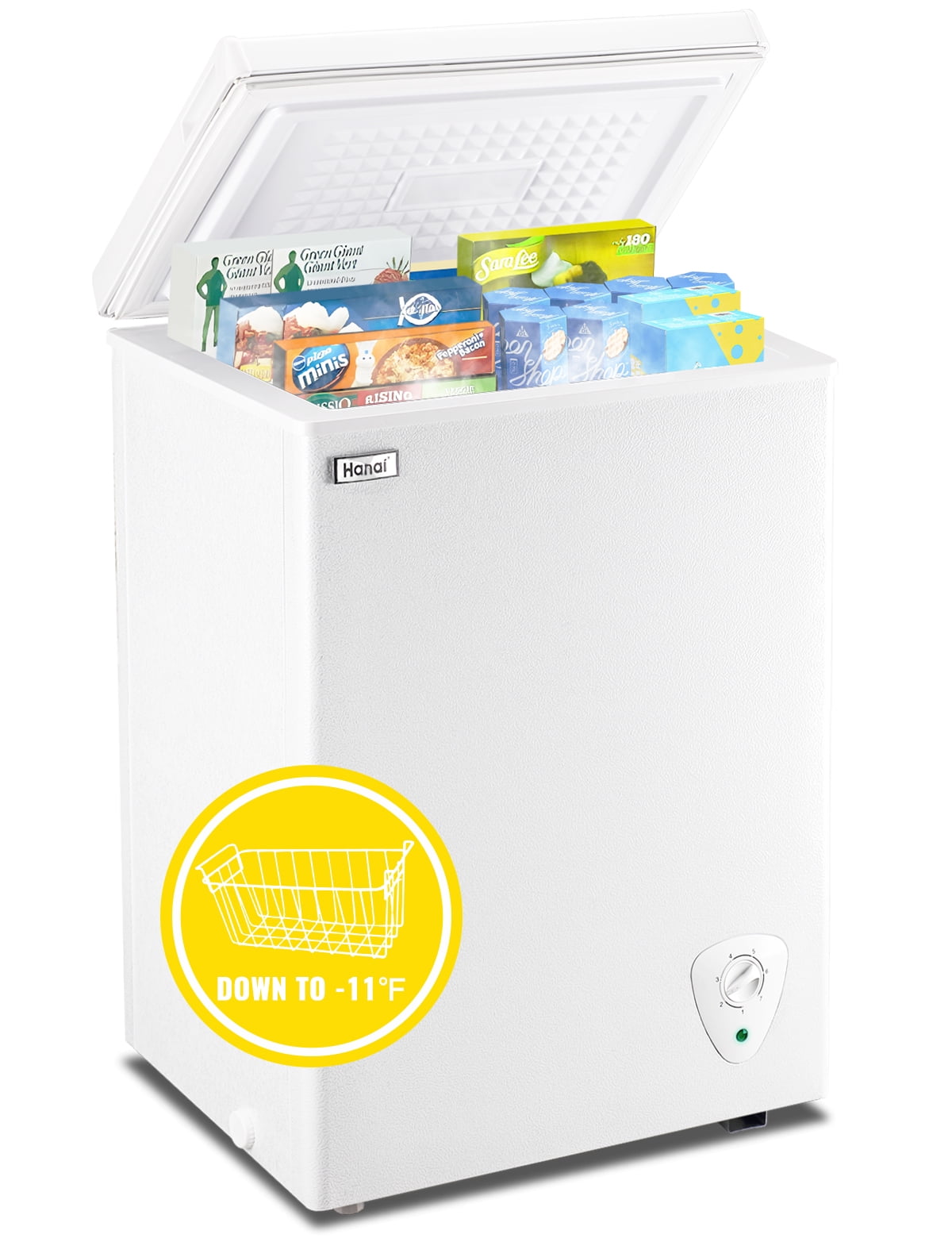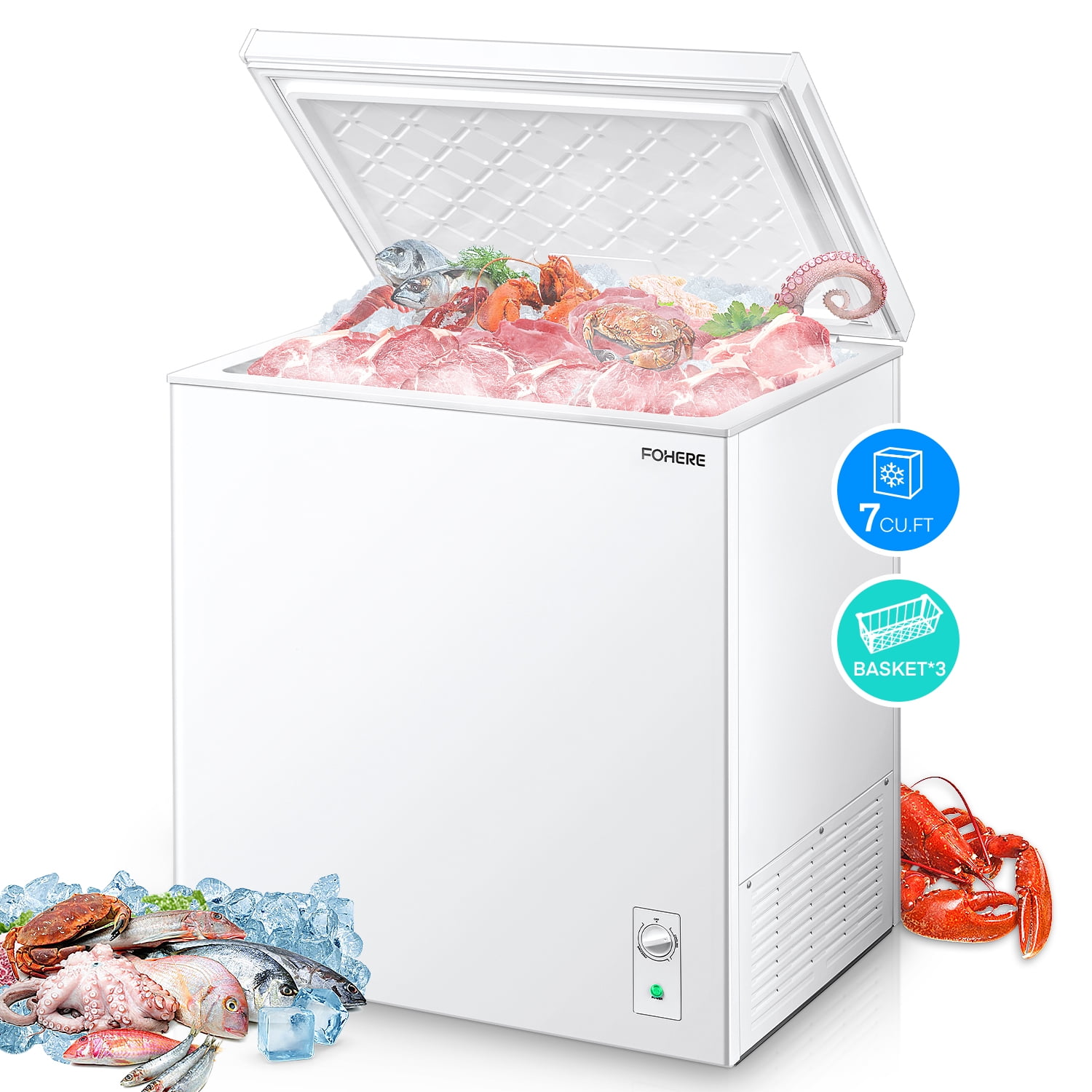How Much Does A Small Chest Freezer Cost To Run

Your frozen food stockpile could be costing you more than you think. The price of running a small chest freezer is rising, hitting household budgets already strained by inflation.
This article breaks down the real cost of operating these appliances, empowering you with information to make informed financial decisions and potentially save money.
The Energy Drain: What's the Real Cost?
The cost to run a small chest freezer varies, but on average, expect to pay between $35 and $80 per year based on recent data. This figure is heavily influenced by your local electricity rates.
According to the U.S. Energy Information Administration (EIA), the average U.S. residential electricity price was 16 cents per kilowatt-hour (kWh) as of late 2023. However, this number changes based on your location.
To calculate your freezer's consumption, check the Energy Guide label on the appliance. It displays the estimated annual energy consumption in kWh.
Factors Influencing Running Costs
Several factors impact how much electricity your chest freezer consumes. Freezer size and energy efficiency play a major role.
Older, less efficient models consume significantly more energy than newer Energy Star certified freezers.
The location of your freezer also matters. Avoid placing it near heat sources like ovens or in direct sunlight.
How full your freezer is impacts efficiency too. A full freezer retains cold better than a mostly empty one.
Ambient temperature is a factor, too. A garage that gets very hot in summer will make the freezer work harder.
Finally, how often you open the lid will impact its efficiency.
Crunching the Numbers: An Example
Let's assume your freezer uses 200 kWh per year. At the average U.S. rate of 16 cents per kWh, it would cost $32 annually.
However, if you live in a state with higher electricity rates, like Hawaii, where prices can exceed 40 cents per kWh, the annual cost could jump to $80.
Use this as a baseline, and factor in the above factors to determine your own cost.
Saving Money: Tips and Tricks
Consider upgrading to an Energy Star certified model to cut down on energy consumption. These models are significantly more efficient.
Ensure proper sealing by checking the door gasket regularly. A damaged seal lets cold air escape, forcing the freezer to work harder.
Defrost your freezer regularly. Excess frost buildup reduces efficiency.
Keep your freezer organized. This reduces the amount of time the door is open while searching for items.
Maximize space utilization. A full freezer is more energy-efficient than an empty one. Fill empty spaces with water-filled containers.
Check your thermostat. Make sure your freezer is at the optimum temperature.
What's Next?
Keep an eye on your energy bill and compare it month-to-month to identify any spikes in usage. Look into potential rebates from your utility company for energy-efficient appliance upgrades.
Stay informed about changing electricity rates in your area and adjust your budget accordingly. Regularly assess your freezer's performance to ensure it's operating efficiently and cost-effectively.
By taking proactive measures, you can minimize the cost of running your small chest freezer and keep more money in your pocket.
![How Much Does A Small Chest Freezer Cost To Run Chest & Deep Freezer Prices + Installation Costs [2023] - HomeGuide](https://res.cloudinary.com/liaison-inc/image/upload/f_auto/q_auto/v1673370562/content/homeguide/homeguide-a-woman-placing-food-in-a-deep-freezer.jpg)
















